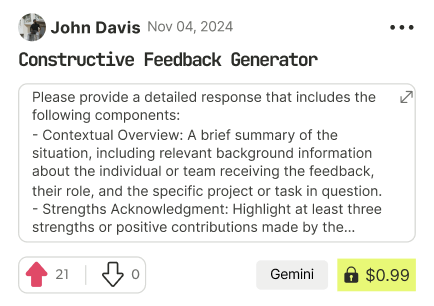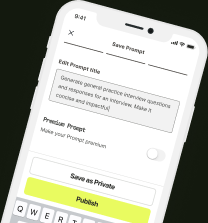prompt mine App
Find, Create & Share AI Magic
FAQ: Understanding Toddler Stuttering
Here are some common questions parents have about their toddler who is stuttering:
Q: What is stuttering in toddlers?
A: Stuttering is a communication difference characterized by disruptions in the flow of speech. In toddlers, this often appears as repetitions of sounds, syllables, or words (like "b-b-ball" or "like-like-like"), prolongations of sounds (like "sssssometimes"), or blocks where sounds seem stuck.
Q: Is it normal for my toddler to stutter?
A: Yes, it's quite common for toddlers between the ages of 2 and 5 to go through a phase of "developmental stuttering." This often happens when their language skills are developing rapidly, and their thoughts are moving faster than their ability to produce fluent speech.
Q: Will my child grow out of this stuttering?
A: Many children do outgrow developmental stuttering on their own, often within 6 to 12 months. However, some children will continue to stutter. It's difficult to predict which children will persist, which is why monitoring and early intervention are sometimes recommended.
Q: What should I do when my toddler stutters?
A: The best thing you can do is listen patiently. Maintain natural eye contact and show you are interested in what they are saying, not how they are saying it. Respond naturally after they finish speaking.
Q: What should I NOT do when my toddler stutters?
A: Avoid interrupting them, finishing their sentences, telling them to "slow down," "take a breath," or "just relax." These reactions can make a child feel self-conscious or pressured, potentially increasing tension.
Q: How else can I help my child at home?
A: Create a relaxed communication environment. Set aside dedicated one-on-one time to talk and play with your child, giving them your full attention. Speak a little more slowly and calmly yourself; this can help reduce the overall pace of communication. Avoid rapid-fire questions.
Q: When should I worry and seek professional help?
A: It's a good idea to consult a Speech-Language Pathologist (SLP) if:
The stuttering has lasted longer than 6 to 12 months.
The stuttering is happening frequently.
You notice physical tension (e.g., in the face or body) when your child stutters.
Your child seems aware of the stuttering or is getting frustrated.
There is a family history of stuttering that persisted.
You simply feel concerned and want guidance.
Q: What kind of professional helps with stuttering?
A: A Speech-Language Pathologist (SLP), sometimes called a speech therapist, is the professional who can assess your child's speech and language development and provide guidance or therapy if needed. Early intervention is often very effective.

Find Powerful AI Prompts
Discover, create, and customize prompts with different models, from ChatGPT to Gemini in seconds

Simple Yet Powerful
Start with an idea and use expert prompts to bring your vision to life!
